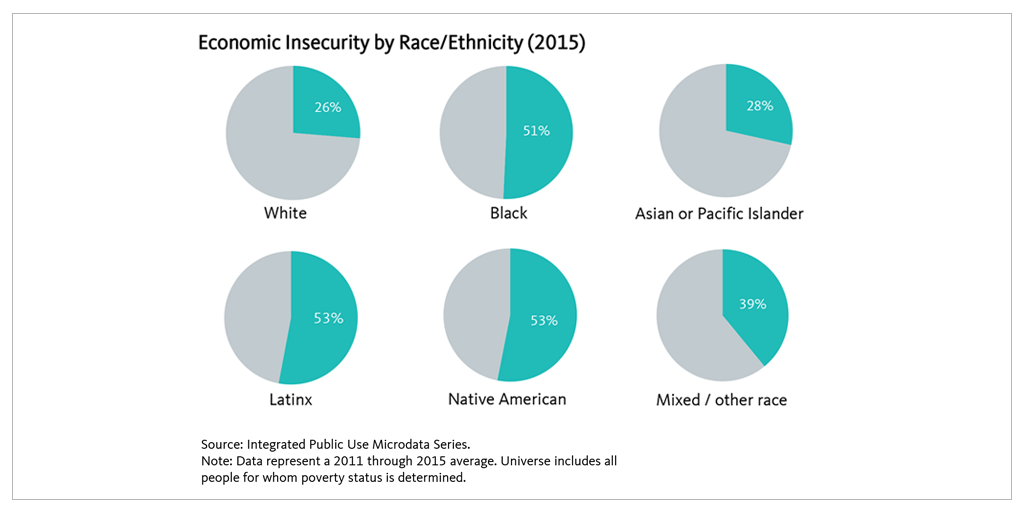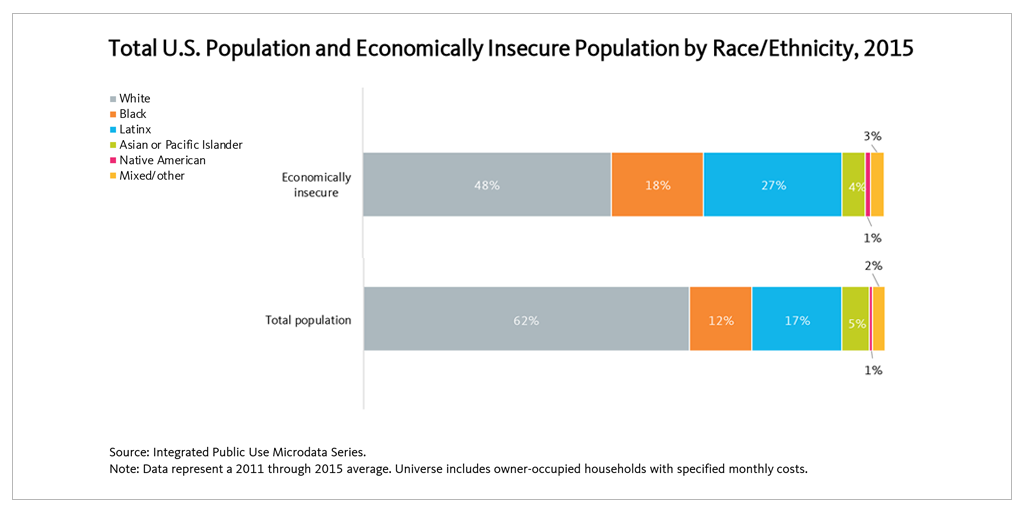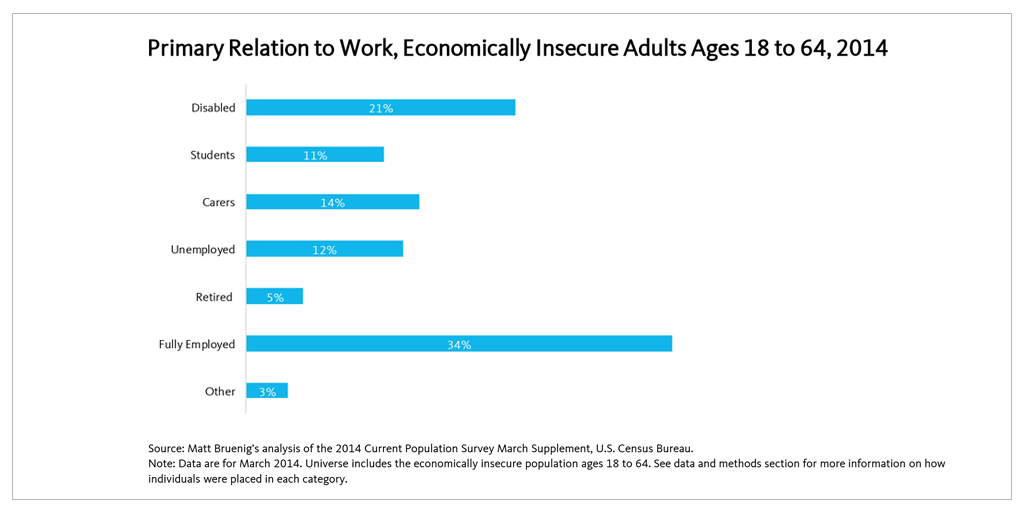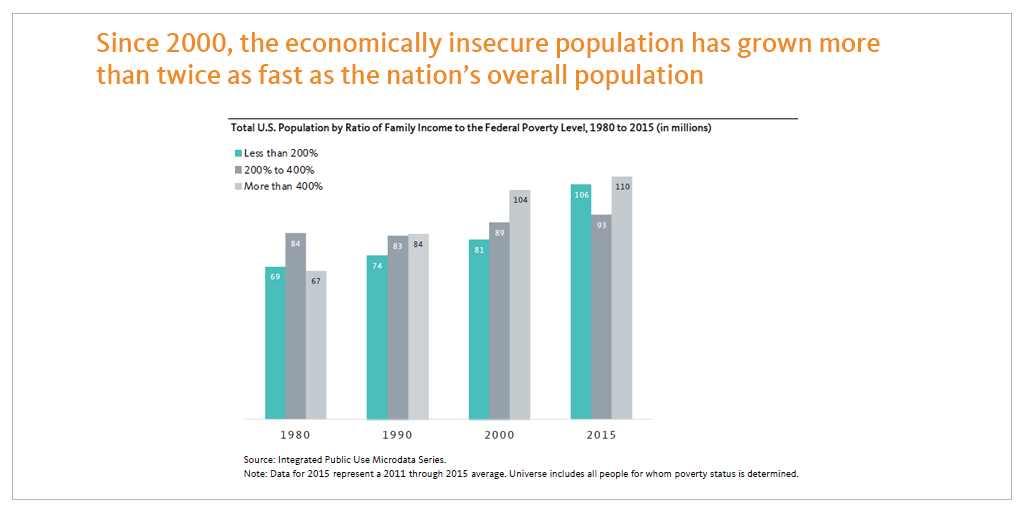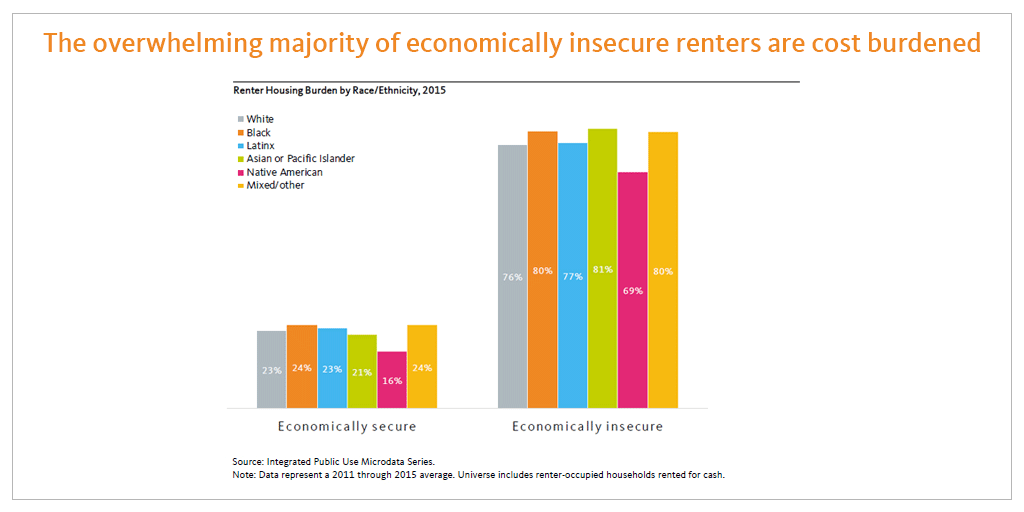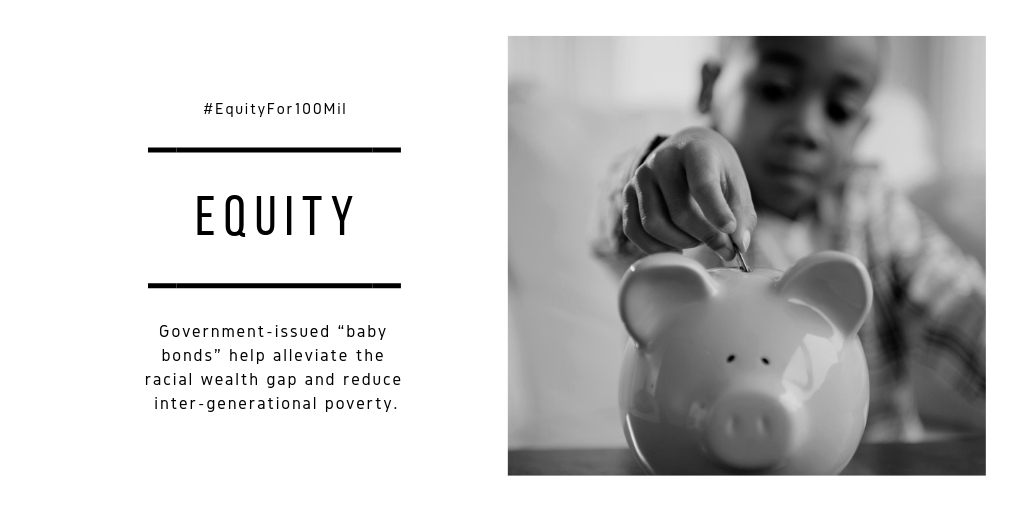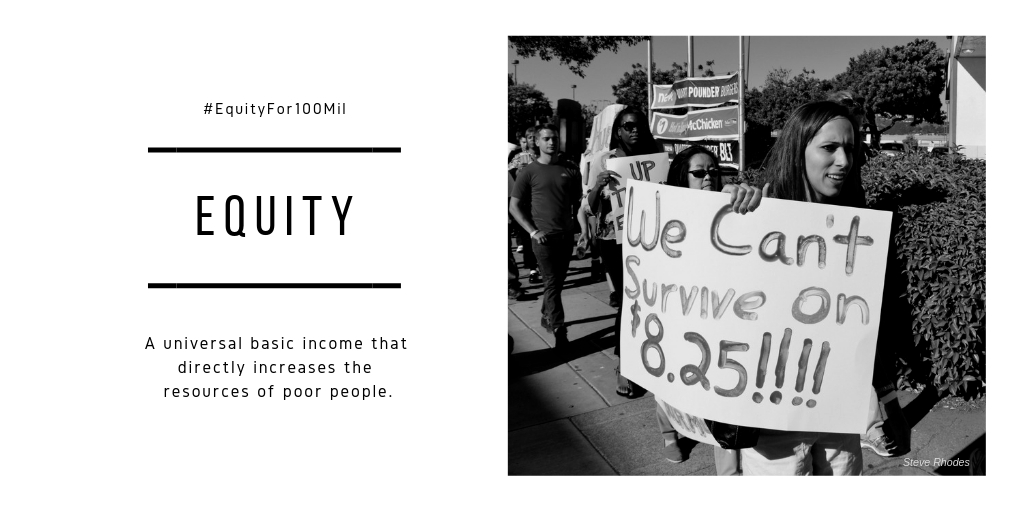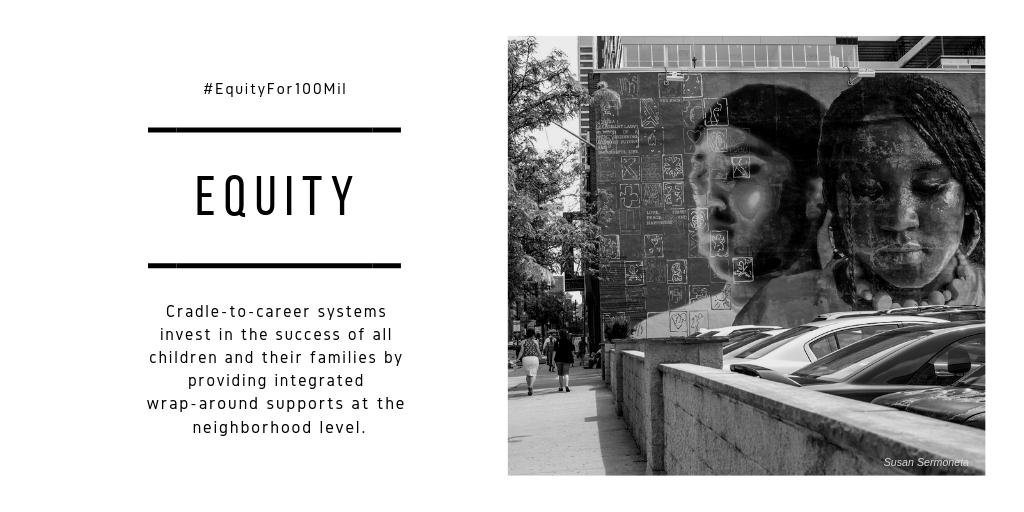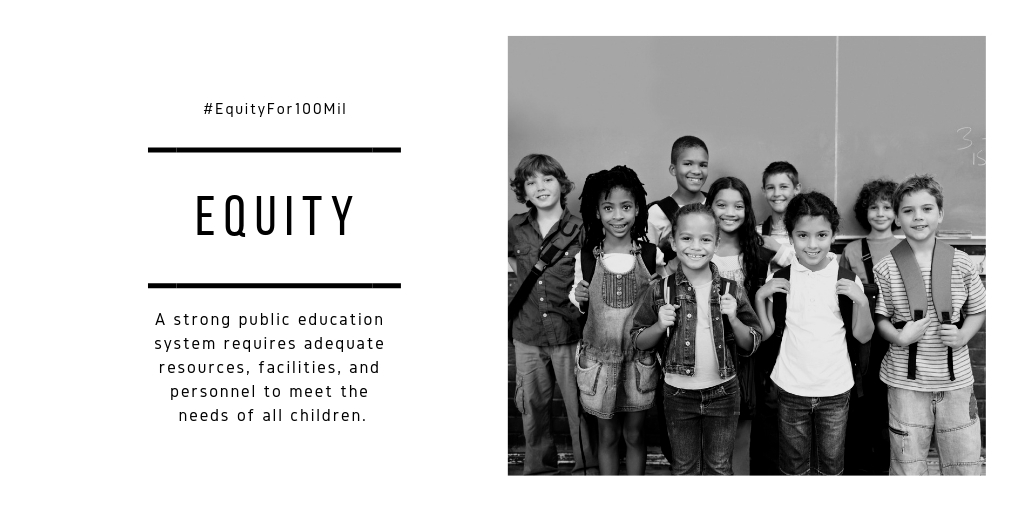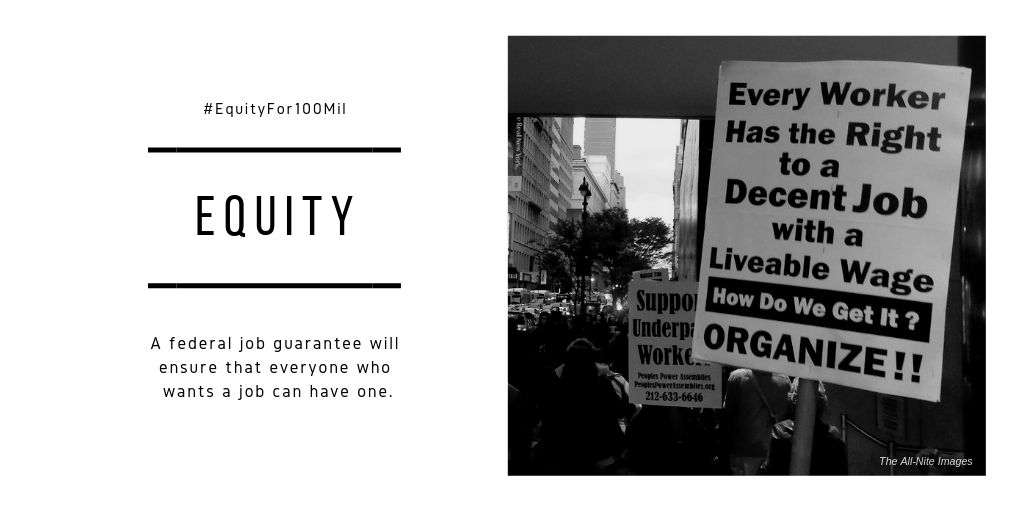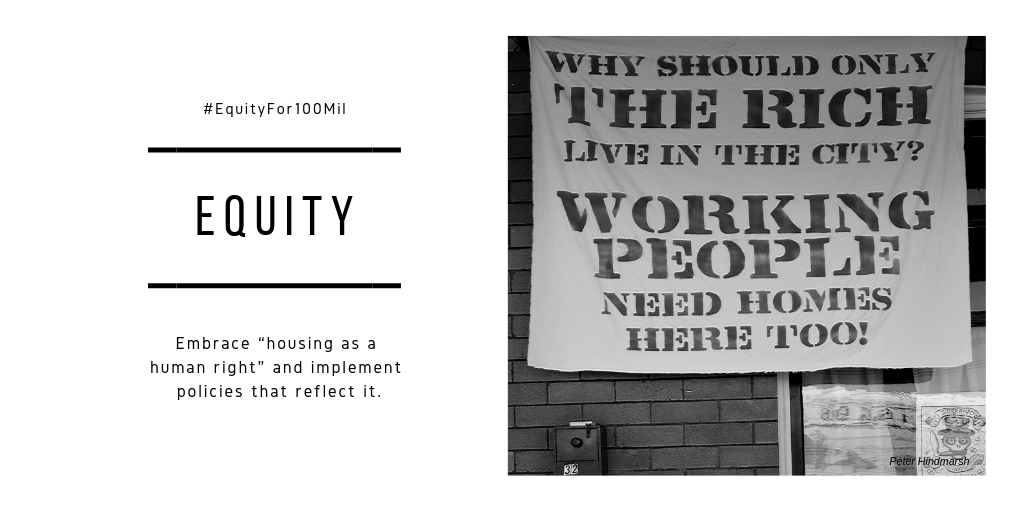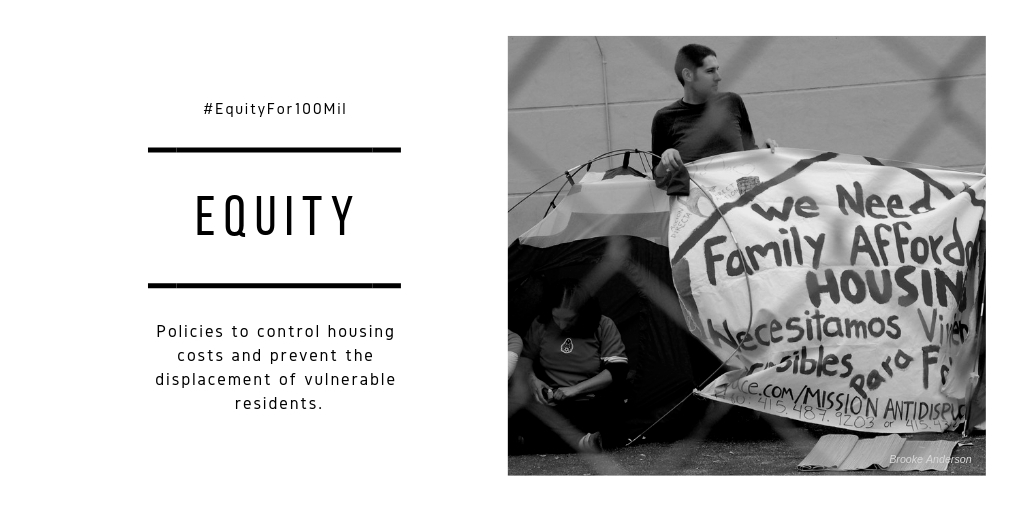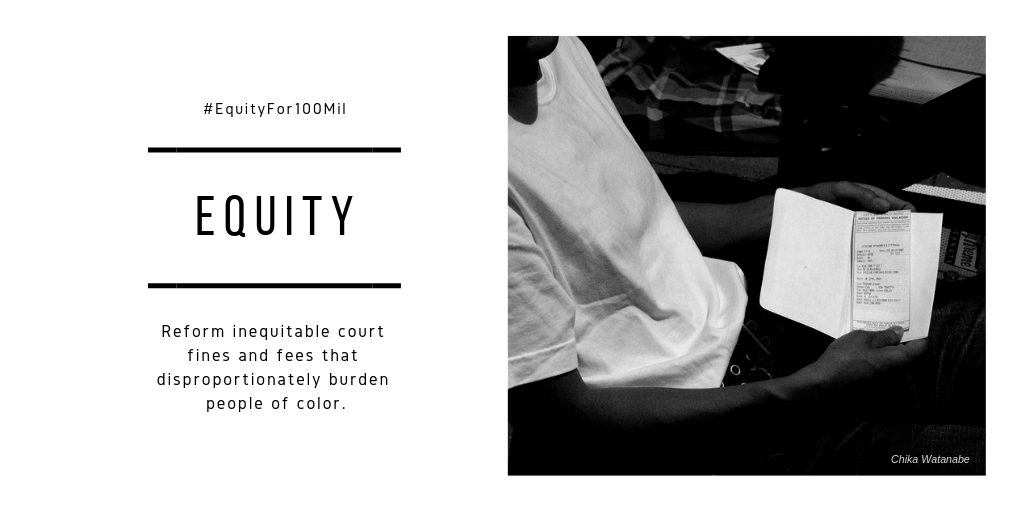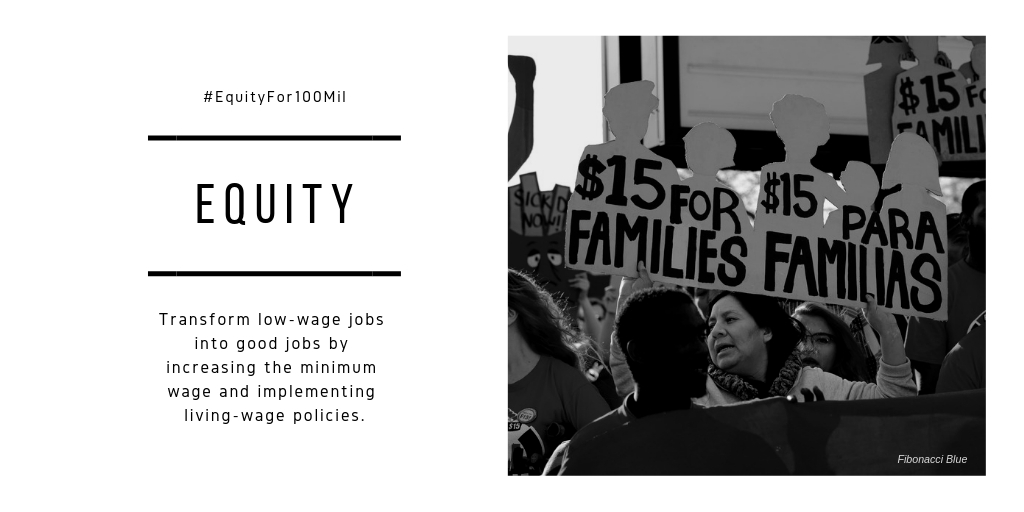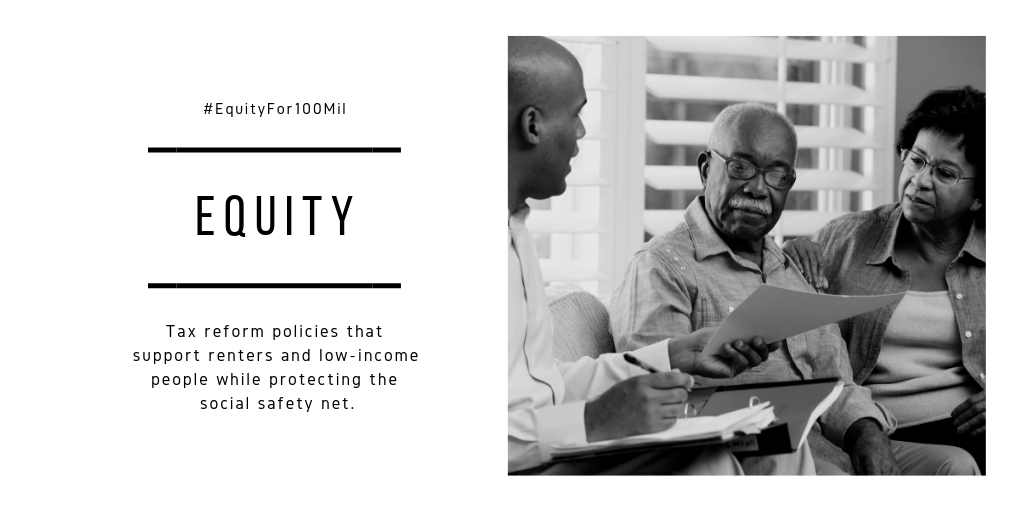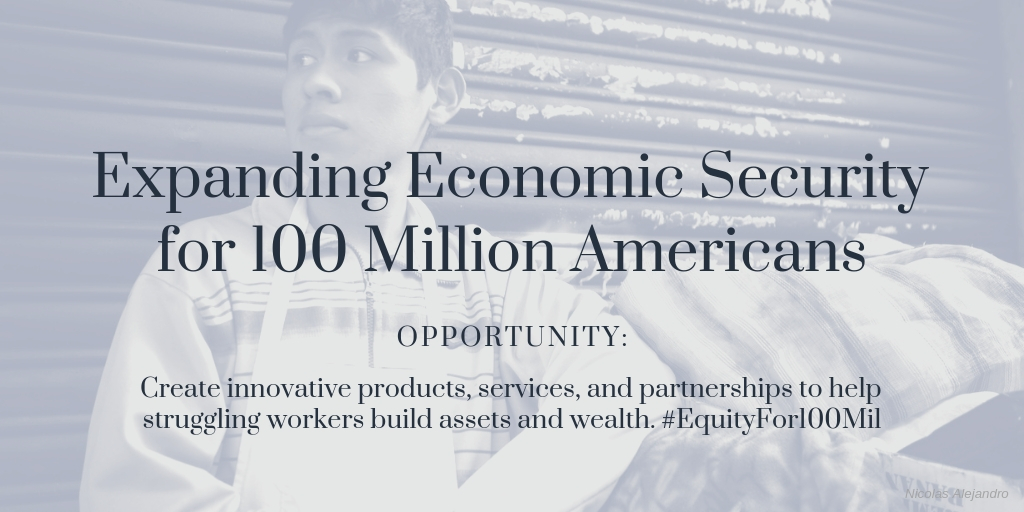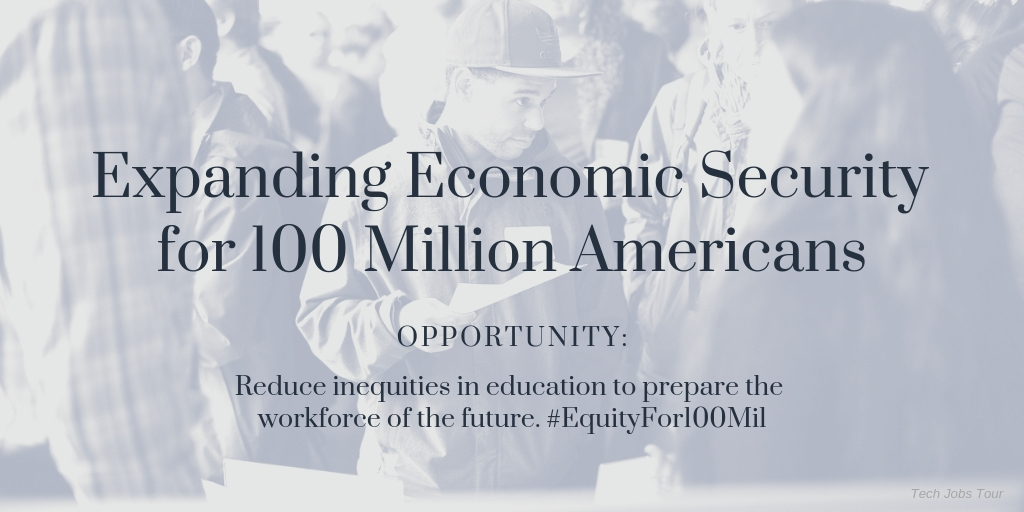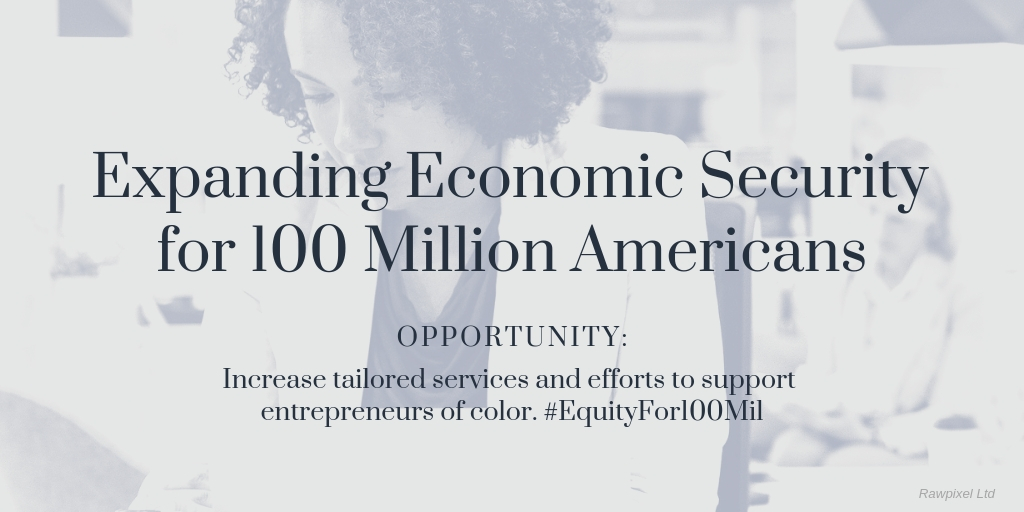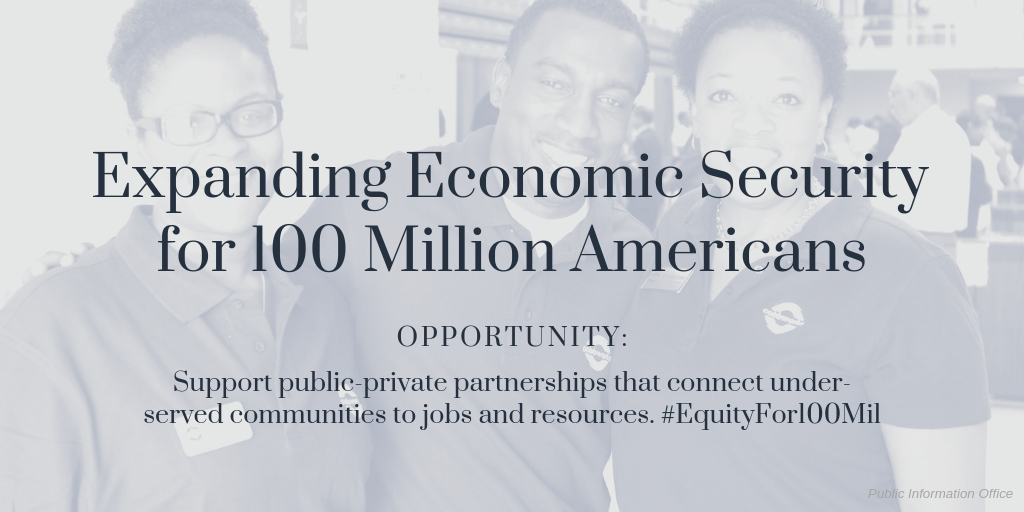Sample Tweets
- Check out today's new report that uses #equitydata to shed light on economic insecurity in the U.S., and the policies needed to build economic security for all. Thanks to our partners: @CNTR4growth @PERE_USC: https://plcylk.org/100Mil #Equityfor100Mil
- Economic insecurity in the U.S. is widespread, growing, and reflects toxic racial disparities. To tackle this crisis, organizers, advocates, and policymakers must be clear about who is excluded and how we can build equity & inclusion. Find out more in a new report: https://plcylk.org/100Mil #Equityfor100Mil
Data-focused:
- People of color account are 38% of the total population, but more than half of the economically insecure. For our diverse nation to thrive, we have to get serious about combating racial and economic inequity. Find out how in "100 Million and Counting": https://plcylk.org/100Mil #Equityfor100Mil
- Low unemployment rates only tell part of the story: A third of working-age adults who are economically insecure work year-round but are still unable to make ends meet due to low wages, inadequate hours, and wage theft. Find out more in a new report: https://plcylk.org/100Mil #Equityfor100Mil
- Since 2000, the number of economically insecure people in the US grew 25Mil, twice as fast as population growth overall. We need to get serious about equity and inclusion in our economy, learn how in "100 Million and Counting": https://plcylk.org/100Mil #Equityfor100Mil #equitydata
- Nearly a third of all people in the US living at or near poverty are children under 18. We must take action now to connect the next generation of workers to opportunity and financial security. Find out more in new report: https://plcylk.org/100Mil #Equityfor100Mil
- A third of people in the U.S. — and half of all POC — are living at or near the federal poverty level. Fighting widespread economic insecurity will take comprehensive policy change at the local, state, and federal level. Register now for the 1/14 webinar to learn more. https://plcylk.org/100-million-webinar #Equityfor100Mil
- Economic insecurity in America reflects entrenched racial inequities: 51% of African Americans are economically insecure, compared to 26% of Whites. Find out more in new report: https://plcylk.org/100Mil #Equityfor100Mil
- Economic insecurity in America reflects entrenched racial inequities: 53% of the Latinx population is economically insecure, compared to 26% of Whites. Find out more in new report: https://plcylk.org/100Mil #Equityfor100Mil
- Economic insecurity in America reflects entrenched racial inequities: 53% of Native Americans are economically insecure, compared to 26% of Whites. Find out more in new report: https://plcylk.org/100Mil #Equityfor100Mil
Solutions-focused:
- Business, government, and civil society can join forces to deliver innovative solutions that advance inclusive growth and combat the widespread economic insecurity that affects 1 in 3 in this nation. Find out more in new report: https://plcylk.org/100Mil #Equityfor100Mil
- For tens of millions of Americans, financial security remains out of reach. Advocates, policymakers, organizers, and business leaders need to work together to transform institutions, fight racial disparities, and bring opportunity to all. Find out more: https://plcylk.org/100Mil #Equityfor100Mil
- Fighting economic insecurity means helping low-income families keep more of the money they earn through tax reforms, affordable housing, and fighting predatory lending. Learn more: https://plcylk.org/100Mil #Equityfor100Mil
- Fighting the economic insecurity that affects a third of the nation means fostering communities where everyone can thrive through quality public ed, affordable housing, and public transit, and cradle-to-career supports for struggling families. Learn more in new report: https://plcylk.org/100Mil #Equityfor100Mil
- Building economic security for the 100 million living at or near poverty means growing good jobs that provide a living wage, paid sick and family leave, and protection from wage theft. Learn more in new report: https://plcylk.org/100Mil #Equityfor100Mil
Policy-focused:
- Fighting the economic insecurity that affects a third of the nation means fostering communities where everyone can access affordable housing and be safe from displacement. Learn more in new report: https://plcylk.org/100Mil #rentcontrol
- Fighting the economic insecurity that affects a third of the nation means supporting quality education for all: universal pre-k, strong public schools, and access to higher ed. Learn more in new report: https://plcylk.org/100Mil #cradletocareer
- Building economic security for the 100 million living at or near poverty means growing good jobs that provide a living wage, paid sick and family leave, and protections from wage theft. Learn more in new report: https://plcylk.org/100Mil #livingwage
- Building equity in business by supporting entrepreneurs of color and triple-bottom-lines are a key part of growing good jobs and fighting economic insecurity. Learn more in new report: https://plcylk.org/100Mil
- Building economic security for the 100 million in or near poverty starts with equitable tax reform that support renters and low-income people. Learn more in new report: https://plcylk.org/100Mil #taxreform
- Fighting economic insecurity means reforming unjust policies, like inequitable court fines and fees, that disproportionately strip wealth from communities of color. Learn more in new report: https://plcylk.org/100Mil #finesandfees
- From transit investments to resilient water and energy systems, a #GreenNewDeal would mitigate climate change while strengthening the economy and fighting economic insecurity. Learn more in new report: https://plcylk.org/100Mil
- 1 in 5 economically insecure households don't have a car. That's why affordable public #transportation to link people to jobs is crucial to building economic security for all. Learn more in new report: https://plcylk.org/100Mil
- We can't fight widespread economic insecurity without ensuring affordable #healthcareforall Learn more in new report; https://plcylk.org/100Mil
- Nearly 6 in 10 children of color in the U.S. are economically insecure. Government-issued #babybonds could help alleviate the racial wealth gap and reduce intergenerational poverty. Find out more: https://plcylk.org/100Mil
- Bold policies like a federal #jobguarantee and universal #basicincome are needed to fight widespread economic insecurity that affects 1 in 3 people in the U.S. and nearly half of all POC. Find out more: https://plcylk.org/100Mil
Facebook (incorporate share graphics below):
#1: Economic security — having stable, sufficient income to meet your basic needs — is critical to the health, well-being, and prosperity of the nation. Though the United States is the wealthiest country on earth, 100 million of us struggle to maintain even a basic standard of living. This economic insecurity is as widespread as it is uneven, reflecting the toxic polarization of wealth and income in this country and the persistence of racial inequities across multiple economic indicators.
To tackle this crisis, organizers, advocates, and policymakers must be clear about who is excluded, the barriers they face, and how we can connect everyone to opportunity and financial security. Learn more in a new report, released today": https://plcylk.org/100Mil and register for upcoming webinar feature a panel of experts on 1/14 https://plcylk.org/100-million-webinar
#2: Amid rising inequality and persistent racial inequities, we need a better way to measure economic hardship in our nation. Official definitions of poverty and unemployment statistics only tell part of the story. In a new report, PolicyLink and the Program for Environmental and Regional Equity at the USC, with support from the Mastercard Center for Inclusive Growth, provide a nuanced analysis of economic insecurity in America and offer concrete solutions for how we can build financial security for all. Find out more:
Report: 100 Million and Counting: https://plcylk.org/100Mil.
Webinar: Register here for an upcoming webinar on 1/14 to discuss economic insecurity in the U.S. https://plcylk.org/100-million-webinar
#3: Even with low unemployment, economic insecurity is rapidly growing. Since 2000, more than 25 million people have joined the ranks of economically insecure, a rate that is twice the nation's population growth. A new report by PolicyLink and the Program for Environmental and Regional Equity at the USC, with support from the Mastercard Center for Inclusive Growth, provides an in-depth portrait of the 100 million individuals in the U.S. who are economically insecure, and the transformational policies that government, business, and civil society must pursue to foster a more equitable, inclusive economy. Learn more:
Report: 100 Million and Counting: A Portrait of Economic Insecurity in the United States: https://plcylk.org/100Mil.
Webinar: Join a panel of experts on 1/14 for a deep dive into economic insecurity in the U.S. and how to build inclusive growth https://plcylk.org/100-million-webinar
All graphics are available for download.
textautoautoautoautodivider

